Short club meeting today with a brunch afterwards. Thank you to the outgoing officers and a big welcome to our new board of officers! Let’s make 2025 a great year.
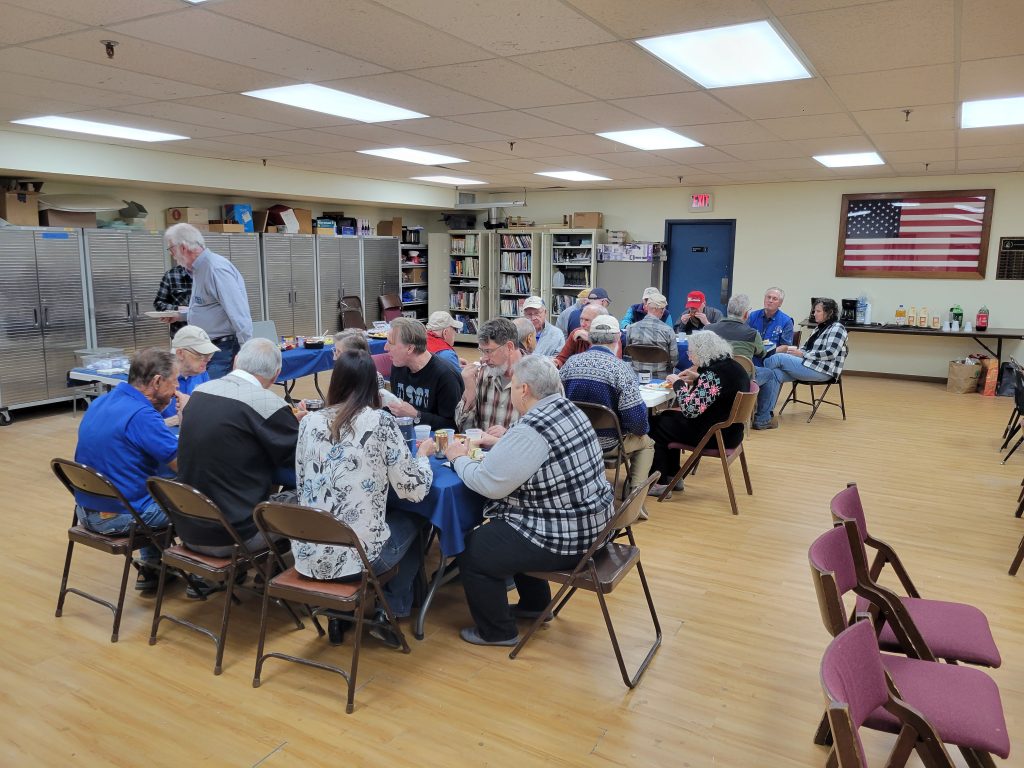
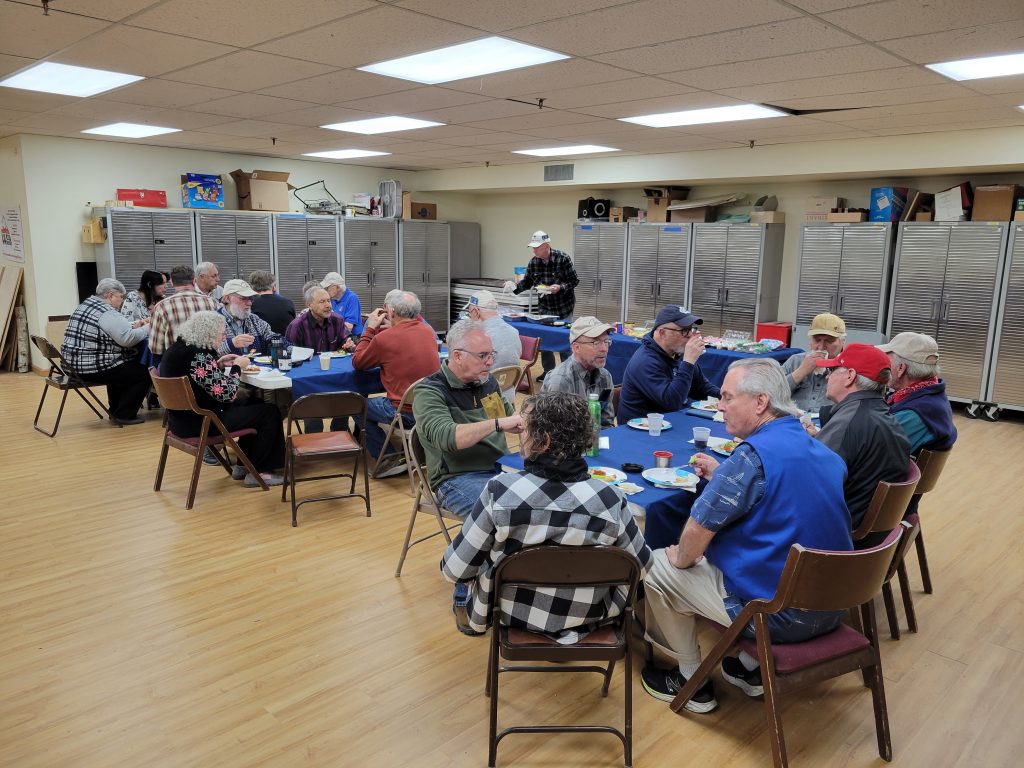

Short club meeting today with a brunch afterwards. Thank you to the outgoing officers and a big welcome to our new board of officers! Let’s make 2025 a great year.


Each year when we hold the Rocklers show in October, the club members vote on the model which is “Best of Show”. This year we congratulate Scott Shilling and his Montanes!!! Nicely done Scott!
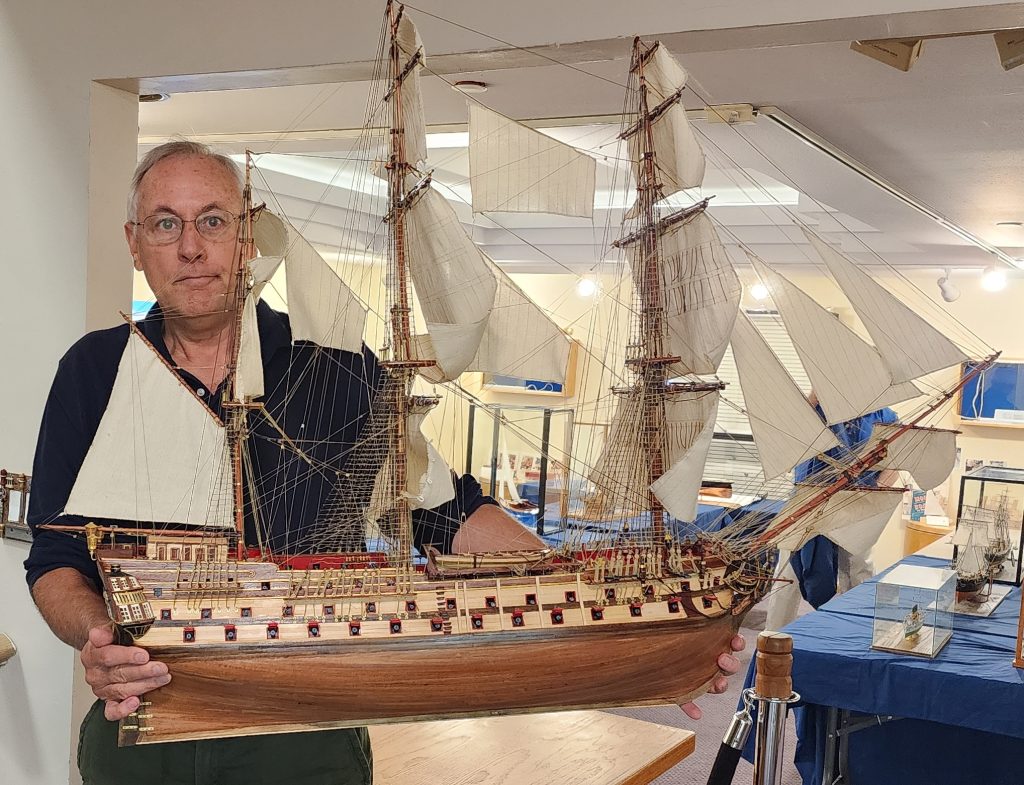
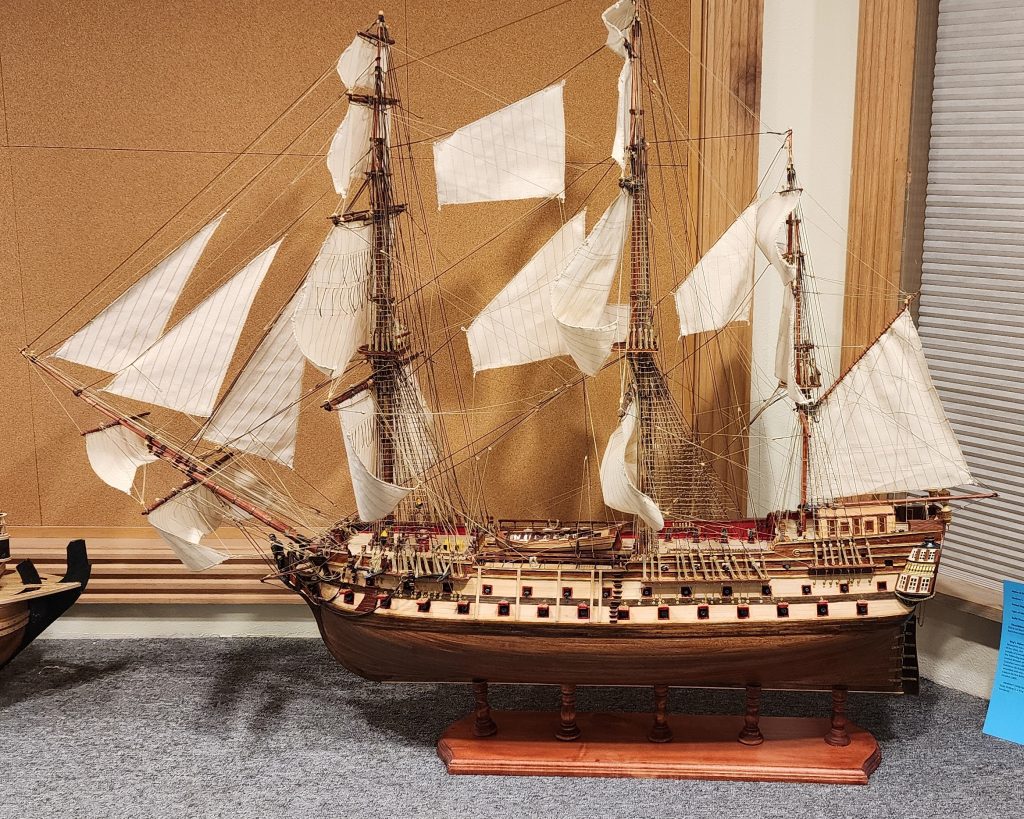
Second place went to Martin Jelsema and his CSS Alabama. Nice Job Martin!
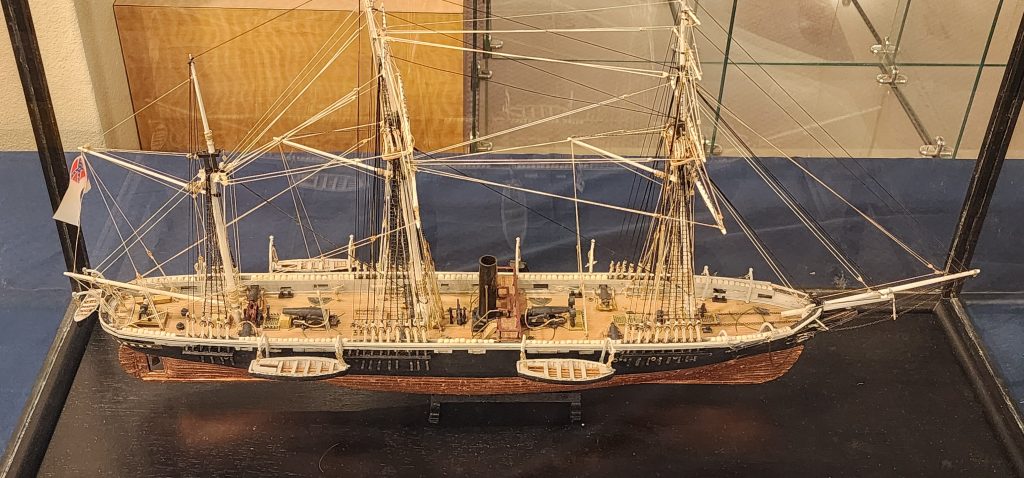
Third place went to Ralph Buckwalter and his SS Republic. Congratulations Ralph!
For our November meeting we will be having our yearly auction again. Please use the below form to submit your items for the auction. If there are any special requests or instructions, please add them to the description. Also, if there is a minimum bid, please ensure that you enter that value into the minimum bid field.
October 18,19, and 20th
It is that time of year again for our fall Rockler Ship Model Exhibit. As in years past, please submit a model form (see navigation link above) with the information about the model that you wish to display in the exhibit.
We will also be needing volunteers to monitor the event. A sign-up sheet with time slots will be made available for volunteers to sign up. It is a great networking event, and it is great to have our knowledgeable modelers on hand to help our visitors with questions about the models and the club.

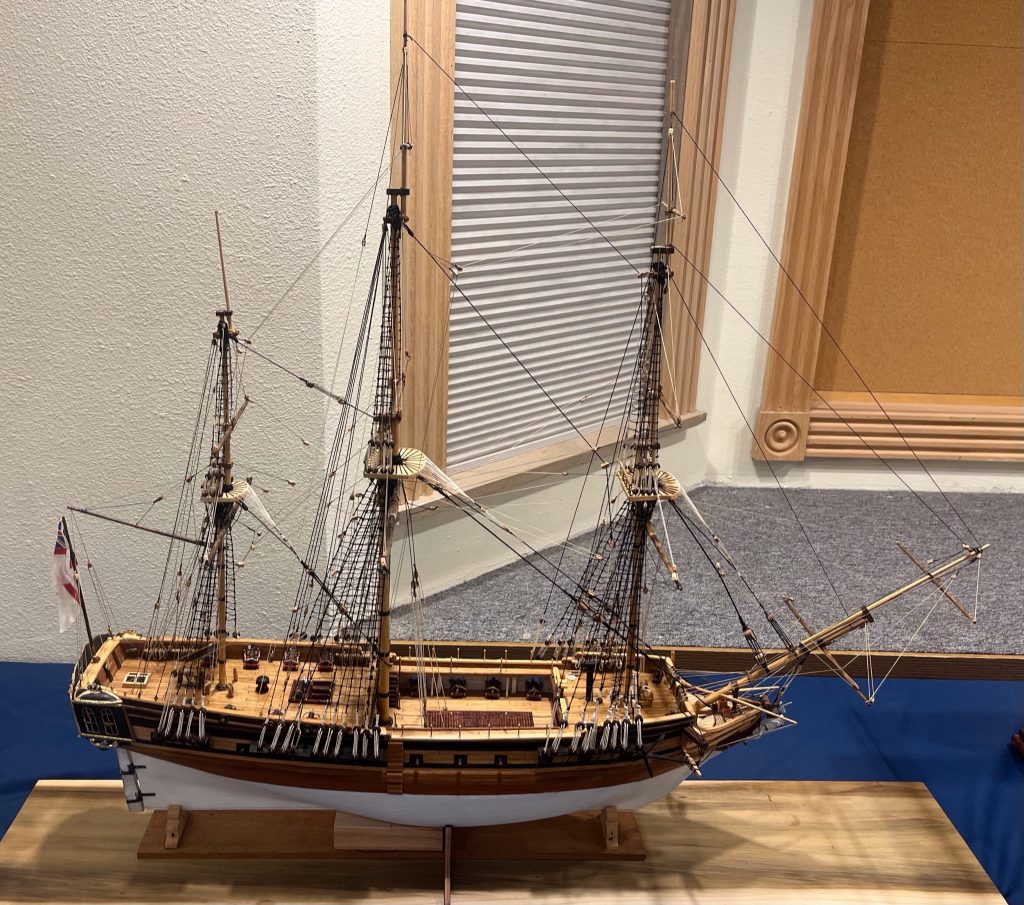
Exhibit: October 2023
Name of Model: HMS Unicorn
Modeler’s Name: Jay McKeown
Period Ship Sailed: 1750’s
Type of Model: Wooden plank on bulkhead
Build Time: 2 years
Scale: 1/75
Ship’s History: HMS Unicorn is a surviving sailing frigate of the successful Leda class, although the original design had been modified by the time that the Unicorn was built, to incorporate a circular stern and “small-timber” system of construction. Listed as part of the National Historic Fleet, Unicorn is now a museum ship in Dundee, Scotland, United Kingdom. She is the oldest ship in Scotland, one of the oldest ships in the world, and one of the last intact warships from the age of sail. HMS Unicorn was built in peacetime at Chatham Dockyard, Kent and launched in 1824. This was a transitional period for shipbuilding, as suitable timber was becoming more difficult to obtain, and iron was increasingly available. Under the direction of Sir Robert Seppings, then Surveyor of the Royal Navy, Unicorn was built with diagonal riders made with iron straps and iron “knees” that strengthened the hull.
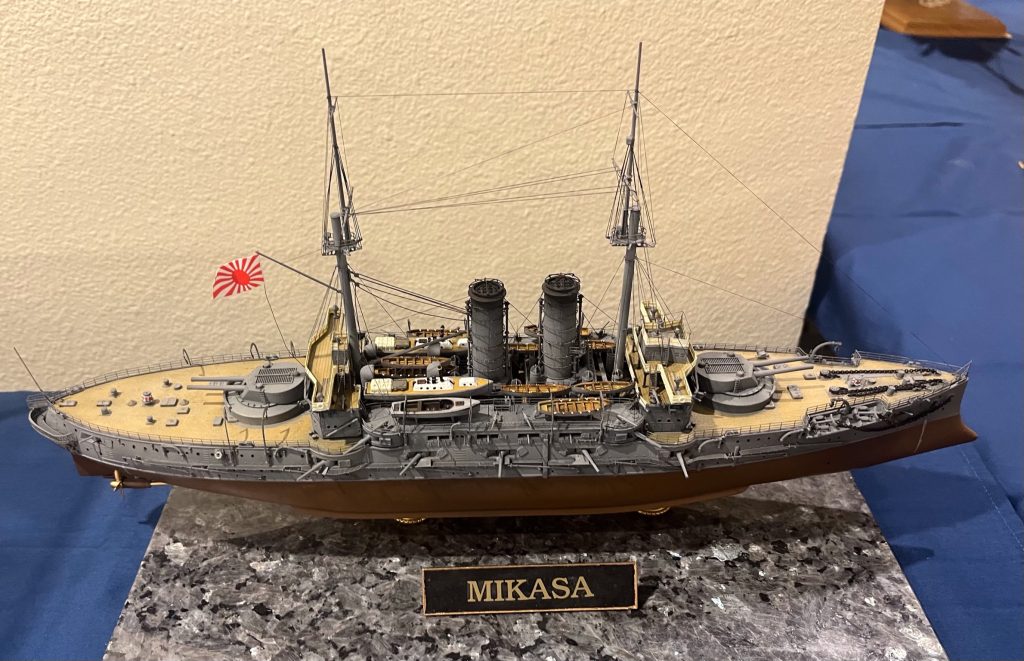
Exhibit: October 2023
Name of Model: IJN Mikasa 1904
Modeler’s Name: Jay McKeown
Period Ship Sailed: 1890 – 1905
Type of Model: 1/350 Hasegawa kit
Build Time: 5 months
Scale: 1:350
Description of build: Lionroar upgrade kit
Ship’s History: She was laid down by Vickers at the Barrow in Furness shipyard on January 24th, 1899 and completed in March 1, 1902. She was transferred to the Japanese fleet on the 13th of March. She was 432 feet long and displaced 15,000 tons, and could reach speeds of 18 knots. She was protected by four 12” main guns in two turrets and fourteen 6” secondary armament. She was the flagship of the Japanese Navy during the Battle of Tsushima (Incheon Bay). Her claim to fame is that on the night of the ensuing battle against the Imperial Russian Navy, she gave the order to attack over a wireless radio network – the first military orders sent over the airwaves in military history.
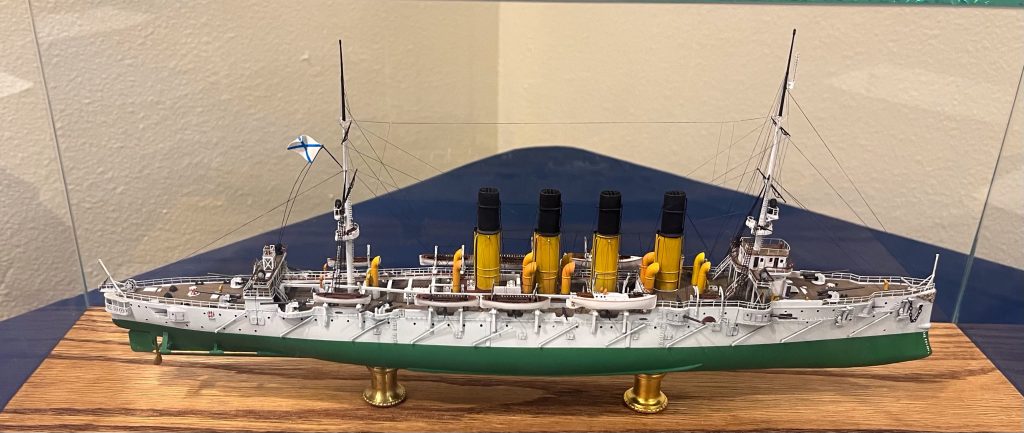
Exhibit: October 2023
Name of Model: IRN Varyag
Modeler’s Name: Jay McKeown
Period Ship Sailed: 1898 to 1901
Type of Model: Zvesda kit
Build Time: 3 months
Scale: 1:350
Description of build: White Ensign Photo Etch, Model Master Barrels, Tamiya paint. Details enhanced with a set of 1/200 plans.
Ship’s History: Varyag’s keel was laid down at the William Cramp Shipyards in Philadelphia, PA in October 1898 and launched on April 11, 1899. She was fitted out and commissioned into the Imperial Russian Navy on January 2, 1901, as part of the Far East Fleet. She was 425 feet long with a displacement of 7,000 tons and was considered a “Protected Cruiser”. Main armament was twelve 6” guns, and twelve 3” quick-fire Cannet guns. She was involved in the Battle of Incheon. Her crew acquitted themselves well by attempting to fight its way out of Incheon Bay but was scuttled after sustaining too much damage. She was part of the surrender that brought about the end of the Russo-Japanese War in February 1905.
Modeler’s Biography: Building quality ships since 2008.
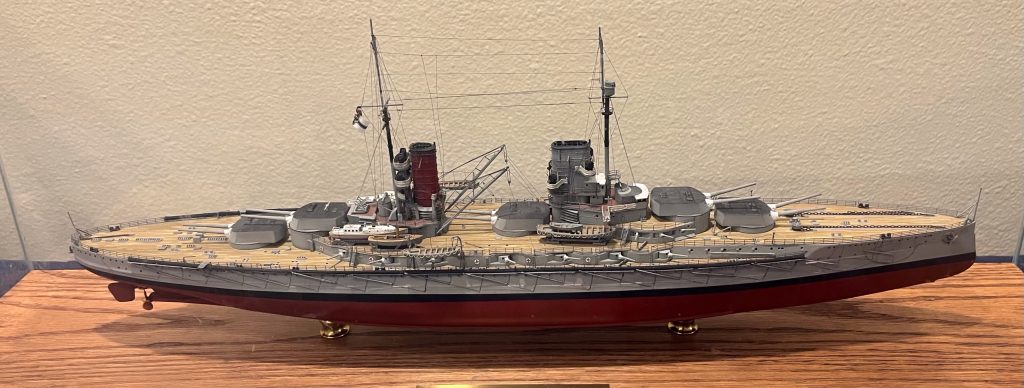
Exhibit: October 2023
Name of Model: SMS GroBer Kurfurst 1916
Modeler’s Name: Jay McKeown
Period Ship Sailed: 1916
Type of Model:
Build Time: 4 months
Scale:
Description of build: ICM base kit with Eduard Photo Etch, Model Master barrels, Humbrol paints
Ship’s History: SMS GroBer Kurfurst was the second ship of the Konig class of battleships. Its keel was laid down in October 1911 in Stettin and launched on May 5, 1913. Shwas armed with ten 12” guns in five turrets. She displaced almost 26,000 tons and could steam at 21 knots. She participated in most of the High Seas Fleet actions during World War I, including Jutland. She was part of the surrender in November 1918 and infamously scuttled on June 21, 1919 with the rest of the fleet interned at Scapa Flow, Scotland.
Modeler’s Biography: Building quality ships since 2008.
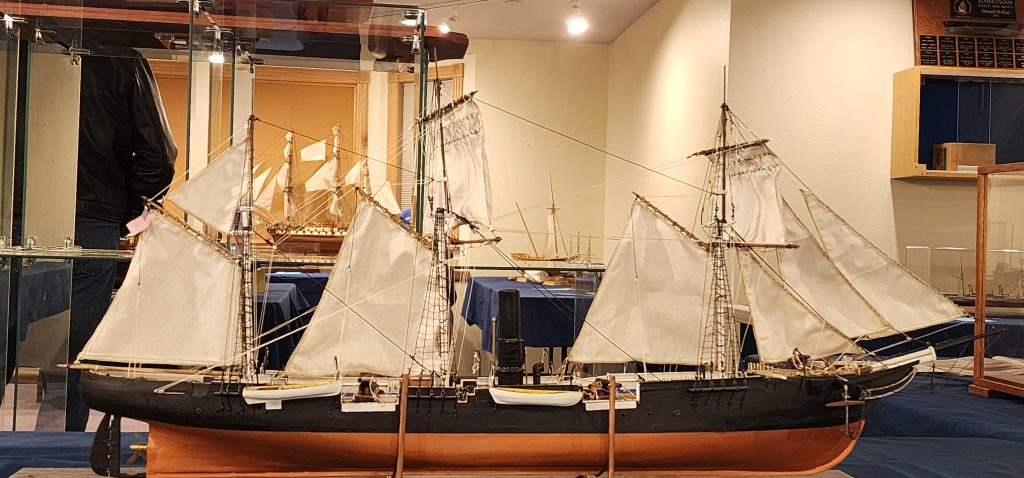
Exhibit: April 2024
Name of Model: USS Kearsarge
Modeler’s Name: Phil von der Heydt
Period Ship Sailed: 1861 – 18884
Type of Model: Wooden kit
Build Time: 3 years on the bench, approximately 2,500 hours
Scale: 1/8’ – 1”
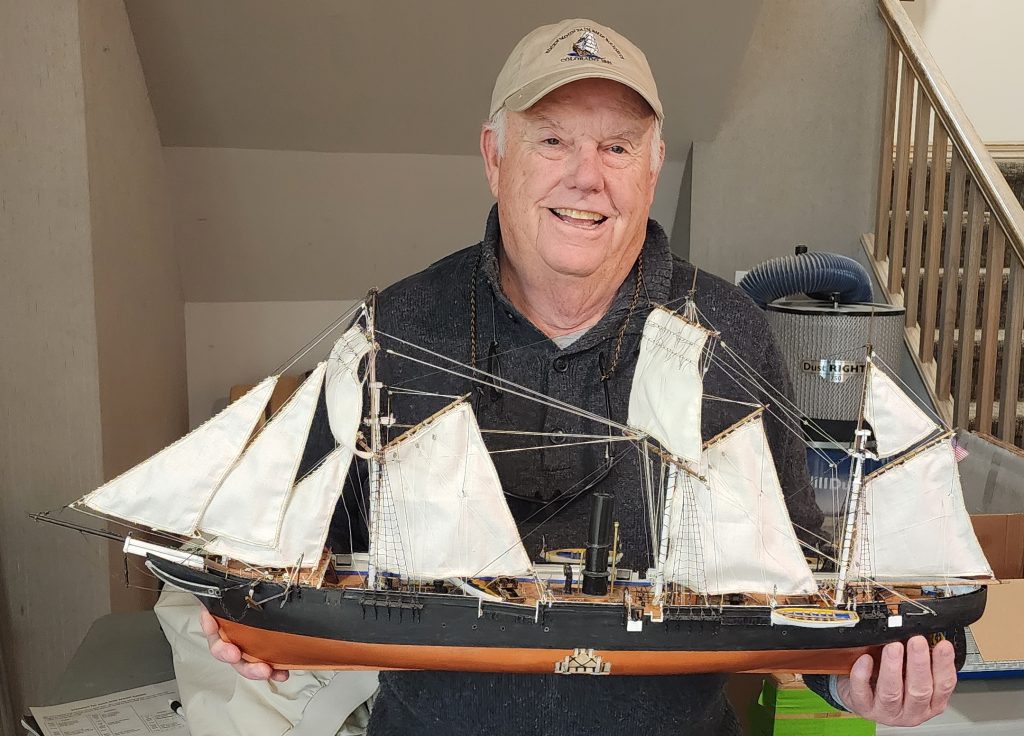
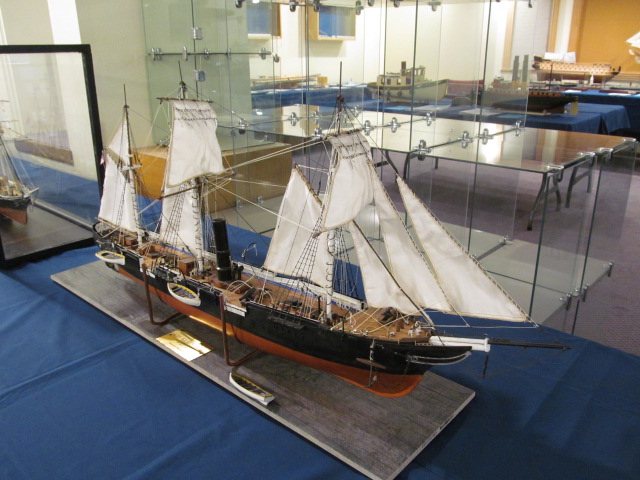
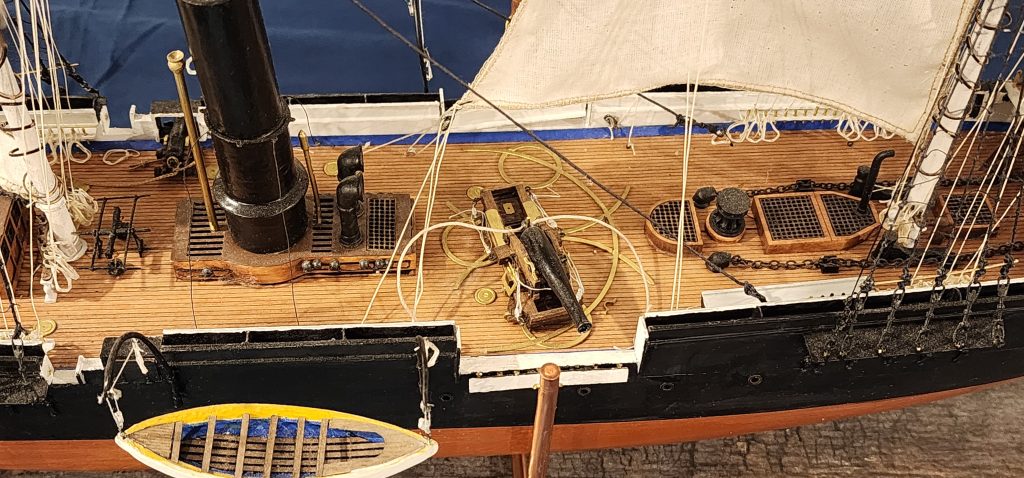

Exhibit: April 2024
Name of Model: Montanes
Modeler’s Name: Scott Shilling
Period Ship Sailed: 1790 to 1820
Type of Model: Tall Ship Man of War
Build Time: 2 years
Scale: 1:70
Description of build: This is an OcCre kit. It took approximately 1 year to construct the hull and deck and then another year to complete the masts, rigging, and sails.